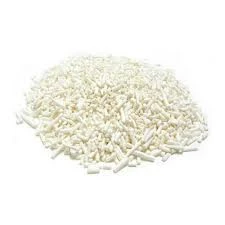
liquid nitrogen fertilizer
The Role of Liquid Nitrogen Fertilizer in Modern Agriculture
As the global population continues to rise, the need for efficient and sustainable agricultural practices becomes increasingly critical. One of the key players in this agricultural revolution is liquid nitrogen fertilizer, an essential component that provides crops with the nitrogen they need for growth and development. This article explores the properties, advantages, and applications of liquid nitrogen fertilizer in modern farming.
Understanding Liquid Nitrogen Fertilizer
Liquid nitrogen fertilizer is a nutrient-rich solution primarily composed of nitrogen in a soluble form. Nitrogen is an essential macronutrient that supports the synthesis of amino acids, proteins, and nucleic acids, all of which are critical for plant growth and development. Unlike solid nitrogen fertilizers, liquid nitrogen fertilizers can be directly applied to the soil or as a foliar spray, making them a versatile option for farmers.
The most common forms of liquid nitrogen fertilizers include urea solutions, ammonium nitrate solutions, and calcium nitrate solutions. Each of these types contains varying concentrations of nitrogen and can be used in different agricultural scenarios based on soil type, crop variety, and environmental conditions.
Advantages of Liquid Nitrogen Fertilizer
1. Quick Absorption One of the primary benefits of liquid nitrogen fertilizers is their rapid absorption by plants. The liquid form allows for immediate uptake, which can lead to faster crop responses compared to granular fertilizers. This can be particularly advantageous during critical growth stages.
2. Improved Efficiency Liquid fertilizers minimize nutrient loss compared to solid forms, as they are less susceptible to leaching and runoff. This can lead to more efficient use of nitrogen, ensuring that crops receive the nutrients they need while reducing environmental impact.
3. Ease of Application Liquid nitrogen fertilizers can be applied through various methods, including drip irrigation and spraying techniques. This flexibility allows farmers to integrate fertilization directly into their existing irrigation systems, promoting labor efficiency and reducing the potential for nutrient loss.
4. Precision Agriculture With advancements in farming technology, liquid nitrogen fertilizers can be used in precision agriculture practices. Farmers can apply the exact amount of fertilizer needed based on real-time soil and crop data, reducing waste and enhancing sustainability.
5. Enhanced Crop Yield When applied correctly, liquid nitrogen fertilizers can significantly boost crop yields. Adequate nitrogen supply is essential for maximizing photosynthesis and plant metabolism, leading to healthier, more productive crops.
liquid nitrogen fertilizer

Applications in Agriculture
Liquid nitrogen fertilizers find applications across various agricultural sectors, including
- Row Crops In the cultivation of corn, soybeans, and wheat, liquid nitrogen fertilizers are often used during the growing season to provide a timely nutrient boost that can enhance yield potential.
- Fruit and Vegetable Production High-value crops like tomatoes, peppers, and cucumbers benefit from liquid nitrogen fertilization, which can improve fruit size and quality.
- Grasslands and Pastures Farmers managing pastures for livestock can utilize liquid nitrogen fertilizers to promote vigorous grass growth, ensuring a consistent food source for their animals.
- Nurseries and Greenhouses Liquid nitrogen fertilizers can also be employed in controlled environments such as greenhouses, where precise nutrient management is essential for optimal plant growth and health.
Environmental Considerations
While liquid nitrogen fertilizers offer numerous benefits, their use must be carefully managed to mitigate environmental risks. Excessive application can lead to nitrogen leaching into waterways, contributing to water pollution and algal blooms. Therefore, implementing best management practices, including soil testing, precise application rates, and timing, is crucial for sustainable nitrogen use.
Conclusion
In conclusion, liquid nitrogen fertilizer plays a vital role in modern agriculture, providing essential nutrients to crops while improving efficiency and sustainability. As farmers face the growing challenges of climate change and population growth, liquid nitrogen fertilizers serve as an important tool in achieving food security and promoting sustainable agricultural practices. By leveraging the advantages of this nutrient-rich solution and coupling it with responsible application methods, agriculture can thrive in an ever-evolving landscape.
-
Pure Sodium Dichloroisocyanurate Dihydrate | Powerful DisinfectantNewsAug.29,2025
-
Industrial Chemicals: Quality & Purity for Every IndustryNewsAug.28,2025
-
Nitrile Rubber Honoring Strict Production StandardsNewsAug.22,2025
-
Aspartame Ingredients Honoring Food Safety ValuesNewsAug.22,2025
-
Fertilizer for Balanced Plant NutritionNewsAug.22,2025
-
Cyanide Gold Processing with High Purity AdditivesNewsAug.22,2025
-
Formic Acid in Textile Dyeing ApplicationsNewsAug.22,2025
Hebei Tenger Chemical Technology Co., Ltd. focuses on the chemical industry and is committed to the export service of chemical raw materials.
-

view more DiethanolisopropanolamineIn the ever-growing field of chemical solutions, diethanolisopropanolamine (DEIPA) stands out as a versatile and important compound. Due to its unique chemical structure and properties, DEIPA is of interest to various industries including construction, personal care, and agriculture. -

view more TriisopropanolamineTriisopropanolamine (TIPA) alkanol amine substance, is a kind of alcohol amine compound with amino and alcohol hydroxyl, and because of its molecules contains both amino and hydroxyl. -

view more Tetramethyl Thiuram DisulfideTetramethyl thiuram disulfide, also known as TMTD, is a white to light-yellow powder with a distinct sulfur-like odor. It is soluble in organic solvents such as benzene, acetone, and ethyl acetate, making it highly versatile for use in different formulations. TMTD is known for its excellent vulcanization acceleration properties, which makes it a key ingredient in the production of rubber products. Additionally, it acts as an effective fungicide and bactericide, making it valuable in agricultural applications. Its high purity and stability ensure consistent performance, making it a preferred choice for manufacturers across various industries.





